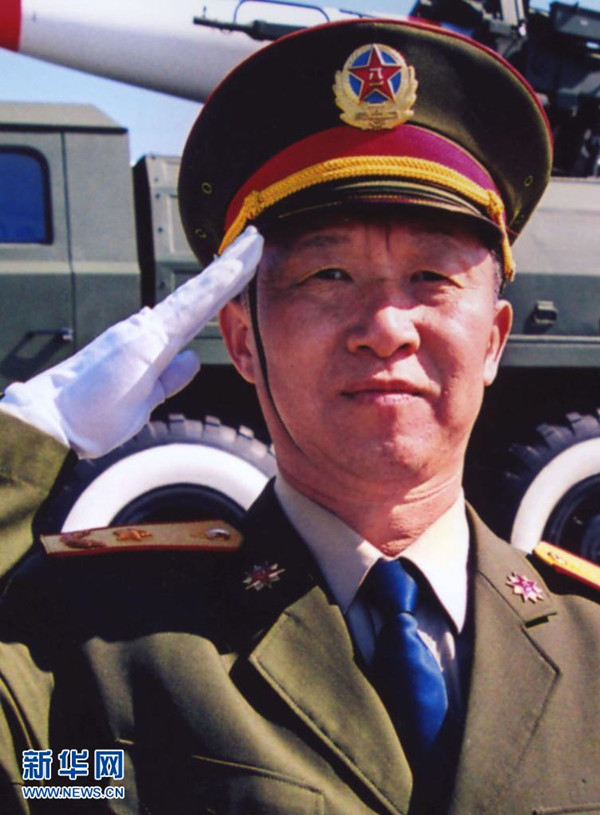Editor's note: To celebrate the 100th anniversary of the founding of the Communist Party of China, we are launching the “Outstanding CPC Members in the PLA” series, featuring the heroes and role models in the PLA who have made selfless dedication to defending the country, serving the people and building a strong military. The following is the 13th story of the series.

Yang Yegong was born in February 1945 in Yingcheng, Hubei Province in Central China. He was enlisted in the army in August 1963 and later joined the Communist Party of China (CPC) in February 1966. He was the deputy chief of staff of the former Second Artillery Force of the Chinese People's Liberation Army (PLA). In July 2004, he died of illness due to chronic overwork.
Yang often said, "War is not far away from us", so we must "compete against time" and maintain a sense of urgency in war preparedness and military training.
In the early 1990s, after China’s Central Military Commission (CMC) put in place the military strategic guideline in a new era, Yang assumed the important task of preparing for the establishment of China's first new-type missile force. With a severe shortage of equipment and talents, this task was formidable.
Besides, the brand-new troops and equipment should be matched with brand-new management and training methods. Though the new-type missile was still in the process of development, Yang received the order to complete the formation and training of the missile brigade in the first place.
To this end, Yang selected 11 elite soldiers to constitute an intensive training detachment. At that time, the development of new-type missiles was still underway, and the detachment was in lack of textbooks and training outlines. Yang led his detachment members to make rounds of visits to missile manufacturers and related research institutes to learn from those specialists.
Yang looked thin and dark after hardworking around the clock day after night. Under his leadership, the new-type missile unit achieved the goal of "being capable of training without weapons, and ready to fight with weapons accessible" and made a successful launch of the first new-type missile in the history of the Second Artillery Force in the year the unit was established.
In 1995, in a major military exercise conducted at the sea area off southeast China, this new-type missile unit with operational capabilities staged a missile-launching drill as ordered and achieved a record of no missing in six launches. For commending his significant role in the drill, Yang was awarded a second-class merit citation.
In those days, Yang conducted field surveys during the day and worked on the map at night, and organized the troops to do rush repair of the launch site in scorching heat despite illness. After the drill, he broke down due to exhaustion and was on a drip for a whole day in the tent of the field health clinic.
Serving in the army for 41 years, Yang devoted his life to the development of the PLA Rocket Force and worked hard with a high spirit until the last minute of his life.
On June 9, 2004, when Yang Yegong, who was already critically ill, woke up from a coma, he immediately called Chen Chuhua, the then commander of a missile brigade, to ask about the brigade’s performance in the military training assessment, and told him to be more careful in the work. Shortly after, Yang fell back into a coma.
On his last days, he kept talking in sleep. His wife thought those were his dying words, so she bent close to listen. What she heard, however, was just some words of command, like "Attention, Relax" and "Left, Right...March..."
In 2005, the CMC posthumously bestowed Yang Yegong the honorary title of Role Model Commander Fulfilling Mission with Loyalty. In 2006, with the approval of the CMC, Yang Yegong was listed as one of the PLA’s eight model heroes whose portraits are widely hung in the clubs, military history halls, cultural activity centers and galleries in the PLA’s troop units at company level and above. The other seven are Zhang Side, Dong Cunrui, Huang Jiguang, Qiu Shaoyun, Lei Feng, Su Ning, and Li Xiangqun.









